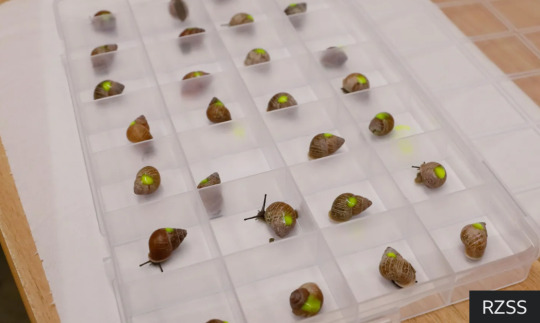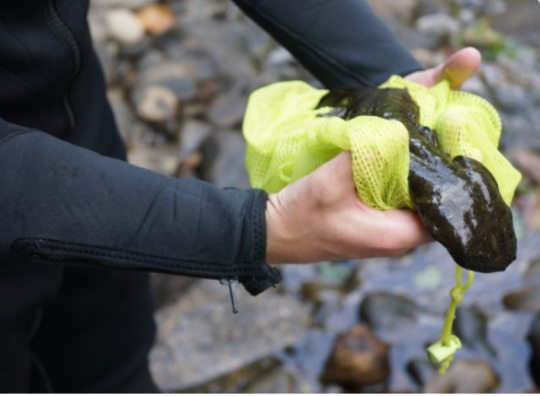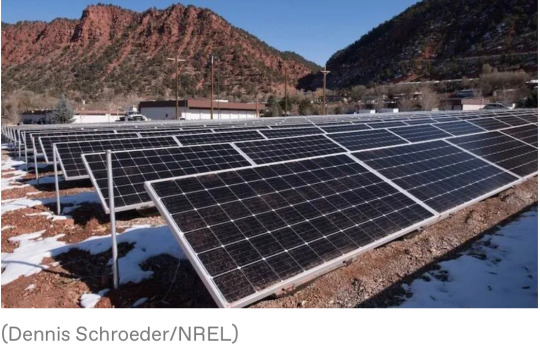#farmer support programs
Explore tagged Tumblr posts
Text
District Reviews PM-Kusum Yojana Progress in Jamshedpur
Solar Pump Initiative Aims to Boost Agricultural Productivity DM Ananya Mittal urges swift processing of applications to benefit eligible farmers. JAMSHEDPUR – District Magistrate cum Deputy Commissioner Ananya Mittal conducted a review meeting for the PM-Kusum Yojana at the Collectorate Auditorium, focusing on application progress and scheme implementation. "This initiative has the potential to…

View On WordPress
#Ananya Mittal DM#जनजीवन#farmer support programs#irrigation improvement projects#Jamshedpur agriculture initiatives#Jamshedpur rural development#Life#PM-Kusum Yojana Jamshedpur#rural electrification schemes#solar energy in farming#solar pump subsidies#sustainable agriculture Jharkhand
0 notes
Text
How the USAID Shutdown Threatens Kenya’s Agriculture Ahead of the Planting Season
The imminent shutdown of the United States Agency for International Development (USAID) this Friday threatens to derail Kenya’s agricultural sector just weeks before the crucial planting season, potentially affecting millions of farmers across the country who depend on various American-funded programmes. The shutdown, which will place all USAID direct hire personnel on administrative leave…
#agricultural development Kenya#climate resilience Kenya agriculture#county agriculture support Kenya#dairy farming impact USAID shutdown#food security Kenya#food systems Kenya#impact of USAID shutdown#Kenya agribusiness crisis#Kenya agriculture crisis#Kenya agriculture funding#Kenya agriculture transformation#Kenya Crops and Dairy Market System#Kenya economic impact USAID#Kenya farming challenges#Kenya irrigation projects USAID#Kenya maize farming USAID#Kenya planting season 2025#Kenyan farmers affected by USAID#Strengthening Agricultural Water Innovations Kenya#USAID agricultural programs#USAID agriculture projects halted#USAID dairy and maize projects#USAID Feed the Future Kenya#USAID food aid Kenya#USAID funding freeze#USAID rural development Kenya#USAID shutdown Kenya#USAID smallholder farmers#USAID soil fertility programs#USAID-supported projects Kenya
1 note
·
View note
Text
#India#women farmers#cash handouts#Modi government#budget announcement#February 1#government expenditure#Pradhan Mantri Kisan Samman Nidhi#annual payout#general election#female voters#election strategy#financial support#agriculture ministry#finance ministry#BJP#Bharatiya Janata Party#opinion polls#Madhya Pradesh#cash transfer program#voting bloc#Narendra Modi#third term#political strategy#government finances#rural economy#landowning women#voting demographics#financial assistance#female empowerment
0 notes
Text
From Farm to Table: How Eating in Season Supports Local Agriculture & Sustainability
“A person who is growing a garden, if he is growing it organically, is improving a piece of the world. He is producing something to eat, which makes him somewhat independent of the grocery business, but he is also enlarging, for himself, the meaning of food and the pleasure of eating.” ― Wendell Berry You may be asking yourself what it means to eat in season. Eating in season simply means we…

View On WordPress
#Animal#Animal Vegetable Miracle#Barbara Kingsolver#Eating in Season#how do I find a CSA?#how do I find my local farmers market?#Local Food#what are the benefits of growing my own food?#what are the benefits of shopping at a farmers market?#what does it mean to eat in Season#what is a Community supported agriculture program?#What is a CSA
0 notes
Text
Things Biden and the Democrats did, this week #20
May 24-31 2024
The EPA awards $900 million to school districts across the country to replace diesel fueled school buses with cleaner alternatives. The money will go to 530 school districts across nearly every state, DC, tribal community, and US territory. The funds will help replace 3,400 buses with cleaner alternatives, 92% of the new buses will be 100% green electric. This adds to the $3 billion the Biden administration has already spent to replace 8,500 school buses across 1,000 school districts in the last 2 years.
For the first time the federal government released guidelines for Voluntary Carbon Markets. Voluntary Carbon Markets are a system by which companies off set their carbon emissions by funding project to fight climate change like investing in wind or solar power. Critics have changed that companies are using them just for PR and their funding often goes to projects that would happen any ways thus not offsetting emissions. The new guidelines seek to insure integrity in the Carbon Markets and make sure they make a meaningful impact. It also pushes companies to address emissions first and use offsets only as a last resort.
The IRS announced it'll take its direct file program nationwide in 2025. In 2024 140,000 tax payers in 12 states used the direct file pilot program and the IRS now plans to bring it to all Americans next tax season. Right now the program is only for simple W-2 returns with no side income but the IRS has plans to expand it to more complex filings in the future. This is one of the many projects at the IRS being funded through President Biden's Inflation Reduction Act.
The White House announced steps to boost nuclear energy in America. Nuclear power in the single largest green energy source in the country accounting for 19% of America's total energy. Boosting Nuclear energy is a key part of the Biden administration's strategy to reach a carbon free electricity sector by 2035. The administration has invested in bring the Palisades nuclear plant in Michigan back on-line, and extending the life of Diablo Canyon in California. In addition the Military will be deploying new small modular nuclear reactors and microreactors to power its installations. The Administration is setting up a task force to help combat the delays and cost overruns that have often derailed new nuclear projects and the Administration is supporting two Gen III+ SMR demonstration projects to highlight the safety and efficiency of the next generation of nuclear power.
The Department of Agriculture announced $824 million in new funding to protect livestock health and combat H5N1. The funding will go toward early detection, vaccine research, and supporting farmers impacted. The USDA is also launching a nation wide Dairy Herd Status Pilot Program, hopefully this program will give us a live look at the health of America's dairy herd and help with early detection. The Biden Administration has reacted quickly and proactively to the early cases of H5N1 to make sure it doesn't spread to the human population and become another pandemic situation.
The White House announced a partnership with 21 states to help supercharge America's aging energy grid. Years of little to no investment in America's Infrastructure has left our energy grid lagging behind the 21st century tech. This partnership aims to squeeze all the energy we can out of our current system while we rush to update and modernize. Last month the administration announced a plan to lay 100,000 miles of new transmission lines over the next five years. The 21 states all with Democratic governors are Arizona, California, Colorado, Connecticut, Delaware, Hawaii, Illinois, Kentucky, Maine, Maryland, Massachusetts, Michigan, New Jersey, New Mexico, New York, North Carolina, Oregon, Pennsylvania, Rhode Island, Washington, and Wisconsin.
The Department of Transportation announced $343 million to update 8 of America's oldest and busiest transportation stations for disability accessibility. These include the MBTA's the Green Line's light-rail B and C branches in Boston, Cleveland's Blue Line, New Orleans' St. Charles Streetcar route, and projects in San Francisco and New York City and other locations
The Department of interior announced two projects for water in Western states. $179 million for drought resilience projects in California and Utah and $242 million for expanding water access in California, Colorado and Washington. The projects should help support drinking water for 6.4 million people every year.
HUD announced $150 million for affordable housing for tribal communities. This adds to the over $1 billion dollars for tribal housing announced earlier in the month. Neil Whitegull of the Ho-Chunk Nation said at the announcement "I know a lot of times as Native Americans we've been here and we've seen people that have said, ‘Oh yeah, we'd like to help Indians.’ And they take a picture and they go away. We never see it, But there's been a commitment here, with the increase in funding, grants, and this administration that is bringing their folks out. And there's a real commitment, I think, to Native American tribes that we've never seen before."
Secretary of State Antony Blinken pledged $135 million to help Moldavia. Since the outbreak of Russia's war against neighboring Ukraine the US has given $774 million in aid to tiny Moldavia. Moldavia has long been dependent on Russian energy but thanks to US investment in the countries energy security Moldavia is breaking away from Russia and moving forward with EU membership.
The US and Guatemala launched the "Youth With Purpose” initiative. The initiative will be run through the Central America Service Corps, launched in 2022 by Vice President Harris the CASC is part of the Biden Administration's efforts to improve life in Central America. The Youth With Purpose program will train 25,000 young Guatemalans and connect with with service projects throughout the country.
Bonus: Today, May 31st 2024, is the last day of the Affordable Connectivity Program. The program helped 23 million Americans connect to the internet while saving them $30 to $75 dollars every month. Despite repeated calls from President Biden Republicans in Congress have refused to act to renew the program. The White House has worked with private companies to get them to agree to extend the savings to the end of 2024. The Biden Administration has invested $90 Billion high-speed internet investments. Such as $42.45 billion for Broadband Equity, Access, and Deployment, $1 billion for the The Middle Mile program laying 12,000 miles of regional fiber networks, and distributed nearly 30,000 connected devices to students and communities, including more than 3,600 through the Tribal Broadband Connectivity Program
#Thanks Biden#joe biden#us politics#politics#American politics#climate change#climate action#nuclear power#h5n1#accessibility#tribal communities#Moldavia#Guatemala#water#internet
1K notes
·
View notes
Text
Get your meat directly from a farm and right to your table! 😆🥩 @swansonfamilyfarm proud to offer quarter, half, and whole cow beef shares—a sustainable, farm-to-table option for high-quality meat straight from the source. By supporting Swanson Family Farm, you’re empowering local farms, fostering food security, and contributing to a lasting impact on agriculture.
Ready to stock your freezer with premium beef? Visit swansonfamilyfarmllc.com to learn more and be part of their growing community of supporters! 🌱💪
Over the last decade, Swanson Family Farm has worked hard to connect family farms across the country, providing nutrient-dense food and supporting farmer-led, farm-based training programs. 🐄✨
@successisus_
#farm#farmers#black farmers#black owned businesses#support black owned#black owned business#black business#black economics#black owned#black entrepreneurs#black excellence#entrepreneur#food#georgia#carnivore#carnivore diet#business owner#black health#b1#black people#black power#black empowerment#black liberation#black lives matter
427 notes
·
View notes
Text
Dandelion News - September 8-14
Like these weekly compilations? Tip me at $kaybarr1735 or check out my new(ly repurposed) Patreon!
1. Pair of rare Amur tiger cubs debuting at Minnesota Zoo are raising hopes for the endangered species

“[The Minnesota Zoo’s] Amur tigers have produced 57 cubs, [… 21 of which] have gone on to produce litters of their own, amounting to another 86 cubs. […] “They’re showing a lot of resiliency, which is something that we work hard for in human care. We want these animals to have a lot of confidence and be able to adapt to new environments just as they’re doing today.””
2. Powered by renewable energy, microbes turn CO₂ into protein and vitamins

“The team designed a two-stage bioreactor system that produces yeast rich in protein and vitamin B9. [… The protein] levels in their yeast exceed those of beef, pork, fish, and lentils. […] Running on clean energy and CO2, the system reduces carbon emissions in food production. It uncouples land use from farming, freeing up space for conservation[… and] will help farmers concentrate on producing vegetables and crops sustainably.”
3. JCPenney Launches Apparel Collection Aimed At Wheelchair Users

“A major department store is rolling out a new line of clothing specifically tailored to meet the needs of women who use wheelchairs featuring options for both everyday wear and special occasions. [… The clothing have] modifications like zippers located for easy access, pocket positioning and extended back rises optimized for the seated position and shorter sleeves to limit interference with wheels.”
4. Snails bred in Edinburgh Zoo sent to re-populate species in French Polynesia

“Thousands of rare partula snails bred at Edinburgh Zoo are to be released in French Polynesia to restore the wild population of the species.The last surviving few of the species were rescued in the early 1990s[….] 15 species and sub-species [are being bred in zoos for repopulation], the majority of which are classed as extinct in the wild.”
5. [NH Joins 19 Other States] to Provide Essential Behavioral Health Services Through Mobile Crisis Intervention Teams
“[CMS] approved New Hampshire’s Medicaid State Plan Amendment for community-based mobile crisis intervention teams to provide services for people experiencing a mental health or substance use disorder crisis. […] The multidisciplinary team provides screening and assessment; stabilization and de-escalation; and coordination with and referrals to health, social, and other services, as needed.”
6. Recovery plan for Missouri population of eastern hellbender

“It is expected that recovery efforts for the Missouri DPS of the eastern hellbender will reduce sedimentation and improve water quality in the aforementioned watersheds, which will also improve drinking water, as well as benefit multiple federally listed mussels, sport fish and other aquatic species.”
7. How $7.3B will help rural co-ops build clean power—and close coal plants

“[The funds are] serving about 5 million households across 23 states [… to] build wind and solar power, which is now cheaper than coal-fired power across most of the country. […] Some of it will be used to pay down the cost of closing coal plants[….] federal funding could help co-ops secure enough wind, solar, and battery resources to retire their entire coal capacity by 2032, cutting carbon emissions by 80 to 90 percent and reducing wholesale electricity costs by 10 to 20 percent[….]”
8. Native-led suicide prevention program focuses on building community strengths

“[Indigenous researchers have] designed programs that aim to build up a community’s endemic strengths, rather than solely treating the risks facing individuals within that community. By providing support and resources that enable access to Alaska Native cultural activities, they hope to strengthen social bonds that build resilience. […] “In a Yup’ik worldview, suicide is not a mental health disorder, and it’s not an individual affliction, it’s a disruption of the collective.””
9. Another rare Javan rhino calf spotted at Indonesia park

“A new Javan rhino calf has been spotted in an Indonesian national park, the facility's head said Friday, further boosting hopes for one of the world's most endangered mammals after two other […] calves were spotted earlier this year at the park, which is the only habitat left for the critically endangered animal.”
10. Transparent solar cells can directly supply energy from glass surfaces

“[Researchers have] unveiled a method of supplying energy directly from glass of buildings, cars, and mobile devices through transparent solar cells. […] It has also succeeded in charging a smartphone using natural sunlight. It also proved the possibility that a screen of a small mobile device can be used as an energy source.”
September 1-7 news here | (all credit for images and written material can be found at the source linked; I don’t claim credit for anything but curating.)
#hopepunk#good news#nature#tiger#endangered species#sustainability#animals#nutrition#jc penney#wheelchair user#adaptive clothing#fashion#snail#edinburgh#scotland#french polynesia#mental health#new hampshire news#missouri#hellbenders#salamander#wind energy#solar power#clean energy#native#community#rhino#technology#baby animals#solar panels
504 notes
·
View notes
Text
Dear USAmericans: The current administration is levying unprecedented tariffs and doing everything in their power to kill Social Security and Medicare/Medicaid. In California alone, roughly half of farm workers are undocumented migrants. The destruction of USAID, among other programs that have been illegally halted, is seriously affecting US farmers. All of these things will have huge and unforseeable effects on the US economy and supply system.
Please, if you have the means at all, plant food. Learn how to grow food. We can't control a great many things, but those of us with access to dirt and sun can grow food.
First, learn what USDA growing zone you're in. This will let you figure out what sorts of plants grow well in your area.
Next, find a regional seed company near you. This will support smaller businesses and farmers better than buying seed from Walmart, and will also give you a selection of seeds appropriate to your climate.
Think about what vegetables and fruits you eat--it's useless growing things you won't eat. Look up the growing requirements on those vegetables (a quick web search is usually enough), and decide which of those you can grow. Some things, like beets, turnips, carrots, and potatoes, produce a lot of calories in a small space. Others, like parsley, basil, thyme, etc., let you add flavor to make eating stuff like beans and rice more pleasant. Think about what plants will fit the way you eat. Make lists. Hell, this is the most fun part.
Check out the Cooperative Extension (gov't funded research through land grant universities) branch near you for a wealth of regionally appropriate science-back gardening information.
Hit up your local library (support your library!!) for beginning gardening books. If you see something online that your library doesn't have, don't forget to submit a request.
Growing requirements vary greatly from plant to plant. The only way to know how to grow a particular plant is to look up information on that specific plant. Fortunately, the internet makes this easy.
Gardening is complicated, and building good soil takes time. You will likely have failures, but you don't grow 100% of the things you don't plant, so it's always worth the attempt. There's no time like the present to start.
227 notes
·
View notes
Text
"The transformation of ancestral lands into intensive monoculture plantations has led to the destruction of Guatemala’s native forests and traditional practices, as well as loss of livelihoods and damage to local health and the environment.
A network of more than 40 Indigenous and local communities and farmer associations are developing agroecology schools across the country to promote the recovery of ancestral practices, educate communities on agroecology and teach them how to build their own local economies.
Based on the traditional “campesino a campesino” (from farmer to farmer) method, the organization says it has improved the livelihoods of 33,000 families who use only organic farming techniques and collectively protect 74,000 hectares (182,858 acres) of forest across Guatemala.
Every Friday at 7:30 a.m., María Isabel Aguilar sells her organic produce in an artisanal market in Totonicapán, a city located in the western highlands of Guatemala. Presented on a handwoven multicolor blanket, her broccoli, cabbage, potatoes and fruits are neatly organized into handmade baskets.
Aguilar is in a cohort of campesinos, or small-scale farmers, who took part in farmer-led agroecology schools in her community. As a way out of the cycle of hunger and poverty, she learned ecological principles of sowing, soil conservation, seed storage, propagation and other agroecological practices that have provided her with greater autonomy, self-sufficiency and improved health.
“We learned how to develop insecticides to fend off pests,” she said. The process, she explained, involves a purely organic cocktail of garlic, chile, horsetail and other weeds and leaves, depending on what type of insecticide is needed. “You want to put this all together and let it settle for several days before applying it, and then the pests won’t come.”
“We also learned how to prepare fertilizer that helps improve the health of our plants,” she added. “Using leaves from trees or medicinal plants we have in our gardens, we apply this to our crops and trees so they give us good fruit.”
The expansion of large-scale agriculture has transformed Guatemala’s ancestral lands into intensive monoculture plantations, leading to the destruction of forests and traditional practices. The use of harmful chemical fertilizers, including glyphosate, which is prohibited in many countries, has destroyed some livelihoods and resulted in serious health and environmental damage.
To combat these trends, organizations across the country have been building a practice called campesino a campesino (from farmer to farmer) to revive the ancient traditions of peasant families in Guatemala. Through the implementation of agroecology schools in communities, they have helped Indigenous and local communities tackle modern-day rural development issues by exchanging wisdom, experiences and resources with other farmers participating in the program.
Keeping ancestral traditions alive
The agroecology schools are organized by a network of more than 40 Indigenous and local communities and farmer associations operating under the Utz Che’ Community Forestry Association. Since 2006, they have spread across several departments, including Totonicapán, Quiché, Quetzaltenango, Sololá and Huehuetenango, representing about 200,000 people — 90% of them Indigenous.
“An important part of this process is the economic autonomy and productive capacity installed in the communities,” said Ilse De León Gramajo, project coordinator at Utz Che’. “How we generate this capacity and knowledge is through the schools and the exchange of experiences that are facilitated by the network.”
Utz Che’, which means “good tree” in the K’iche’ Mayan language, identifies communities in need of support and sends a representative to set up the schools. Around 30-35 people participate in each school, including women and men of all ages. The aim is to facilitate co-learning rather than invite an “expert” to lead the classes.
The purpose of these schools is to help farmers identify problems and opportunities, propose possible solutions and receive technical support that can later be shared with other farmers.
The participants decide what they want to learn. Together, they exchange knowledge and experiment with different solutions to thorny problems. If no one in the class knows how to deal with a certain issue, Utz Che’ will invite someone from another community to come in and teach...
Part of what Utz Che’ does is document ancestral practices to disseminate among schools. Over time, the group has compiled a list of basics that it considers to be fundamental to all the farming communities, most of which respond to the needs and requests that have surfaced in the schools.
Agroecology schools transform lives
Claudia Irene Calderón, based at the University of Wisconsin-Madison, is an expert in agroecology and sustainable food systems in Guatemala. She said she believes the co-creation of knowledge is “key to balance the decision-making power that corporations have, which focus on profit maximization and not on climate change mitigation and adaptation.”
“The recovery and, I would add, revalorization of ancestral practices is essential to diversify fields and diets and to enhance planetary health,” she said. “Recognizing the value of ancestral practices that are rooted in communality and that foster solidarity and mutual aid is instrumental to strengthen the social fabric of Indigenous and small-scale farmers in Guatemala.”
Through the implementation of agroecology schools across the country, Utz Che’ says it has improved the livelihoods of 33,000 families. In total, these farmers also report that they collectively protect 74,000 hectares (182,858 acres) of forest across Guatemala by fighting fires, monitoring illegal logging and practicing reforestation.
In 2022, Utz Che’ surveyed 32 women who had taken part in the agroecology school. All the women had become fully responsible for the production, distribution and commercialization of their products, which was taught to them in agroecology schools. Today, they sell their produce at the artisanal market in Totonicapán.
The findings, which highlight the many ways the schools helped them improve their knowledge, also demonstrate the power and potential of these schools to increase opportunities and strengthen the independence of women producers across the country...
The schools are centered around the idea that people are responsible for protecting their natural resources and, through the revitalization of ancestral practices, can help safeguard the environment and strengthen livelihoods."
-via Mongabay News, July 7, 2023
#a little older but still very good!#indigenous#farming#agriculture#sustainable agriculture#agroecology#land back#guatemala#latin america#north america#central america#indigenous knowledge#indigenous peoples#good news#hope
326 notes
·
View notes
Text



boyfriend!iwaizumi when you’re a famous idol.
iwaizumi hajime x fem!reader.
genre: fluff.
warnings: bad english/grammar :p /mention of the kpop industry (in here, dating someone is less taboo than it is in real life) / first work so it’s not that good.
_
after high school, you left japan for south korea, you always had this dream of becoming a kpop idol. during your time in seijoh, you were already known for being an amazing dancer but also for your angelic voice.
iwaizumi would always brag about you to the volleyball team, oikawa would tease him about you leaving him for a famous korean actor, after you became famous. to which, iwaizumi would respond with a kick in his friend’s back. truth be told, he was actually very scared of what the future had in store for you two after high school. he didn’t know if long distance would work for you, or if you even wanted it in the first place.
during your last school day, iwaizumi walked you back home, like he always did, but he seemed out of it and almost, sad? you asked him what was wrong and he told you that if you wanted to break up with him to focus on your dreams, he’d respect your decision and always support you. he couldn’t even look at you, tears starting to form in the corner of his eyes as he tried his best to keep a straight face. his words surprised you and broke your heart because you never knew that iwaizumi could be so dumb to think that you’d break up with him like that. "no matter the distance, it will never make me forget about how much i love you, hajime."
so you left for south korea and he left for america to study. you two called each other everyday, when you two were too busy, you’d try to call at least twice a week. iwaizumi was busy with school and finals took all his time while your trainee program took up yours. but somehow you two made it work. a few years later, you debuted as a soloist and sold millions with your first album whilst iwaizumi came back to japan after graduating, and became an athletic trainer for japan national volleyball team. you couldn’t be prouder of him, and you were his pride. he streamed all your songs, putting them on speaker while the boys would practice, he brought all your albums and watched the variety shows you were featured in. he was basically the president of your fanclub. and he wasn’t ashamed of it.
you two always made sure to go together on vacation in a foreign country, where kpop wasn’t really the thing. the distance actually strengthened your relationship since being apart of each other for so long, made the reunion better. you knew iwaizumi was it for you, and he was also your muse for your music. your fans often joked about how inspired and how deep your love songs were. it made you laugh to read all their theories about you being married to a farmer. if only they knew…
iwaizumi never minded being your secret boyfriend, he actually liked it that way. he didn’t know if he could bare being in the public eye every time. knowing that you were south korea’s sweetheart, being your public boyfriend would mean saying goodbye to his peaceful life, and iwaizumi wasn’t ready for that. well, he wasn’t ready yet. one day, he woke up to his phone being blown up by messages, actually tons of messages, from the groupchat he shared with the japan national team. he even had missed calls from oikawa, and all his close friends.
shoyo: IWAIZUMI-SENPAIIIIII
SID YOU SEE HHE NEWS???
kageyama: learn how to spell, idiot.
ushijima: blowing up his phone isn’t the best way to announce something like that.
bokuto: HAJI-SAN IT’S TERRIBLE ARE YOU OKAY??
atsumu: JUST SHUT UP
let the man wake up peacefully damn
shoyo: IT WAS TO BE A FAKE NEWS RIGHT??
bokuto: YEAH L/N-SAN WOULD NEVER DO THAT
iwaizumi: what the fuck?
ushijima: you should check twitter, hajime.
iwaizumi had frowned, but went on twitter, an app you forced him to subscribe to. apparently it was the genz’s newspaper. to his surprise, your face was all over his feed, it wasn’t surprising because he liked everything about you, followed dozens of fan account and basically became a fan account himself. but what surprised him was seeing those big account talking about your "relationship" with a famous korean actor.
"l/n y/n, the famous soloist who stole everyone’s heart with her heartfelt songs and beautiful looks, is dating a/l a/n!"
his eyes widened as he typed your name to call you immediately. his heart was beating so fast as he didn’t know how to feel about this. of course it was fake news, right? he knew you’d never cheat on him, you loved each other and iwaizumi couldn’t see his life without you in it. he quickly became aware of how much he loved you and how important you were in his life. without you, iwaizumi would be nothing but an empty shell. "hajime? thank god, i tried to call you!" your voice made him release a breath he didn’t know he was holding. "you saw, right?" your voice was small and for a second he thought that maybe you called him to announce your new relationship with this dumbass actor. "yeah, it’s not that fun to wakeup to your friends blowing up your phone and news outlets talking about your girlfriend’s relationship with that fucker." he rubbed his face with his free hand. "these idiots took pictures of us while we were in cabo and thought it was a/n. apparently you two look alike." he heard you chuckle which made him feel warm inside. he hated the fact that he doubted you for a second. suddenly, an idea popped up in his head, a crazy one but still. "you have an award show in a week right?" he asked you, a smile tugging at his lips. "yeah, why?"
well, iwaizumi’s idea was indeed crazy but you didn’t care, you were down for it. and as your name got called in the category, "best female artist", iwaizumi was next to you, he stood up before you could even understand what was going on, and he kissed you. showing to the world, that you were his as much as he was yours. it was a crazy way to launch your relationship to the world, but you didn’t care, because as long as you were together, nothing could happen.
#haikyuu#haikyuu x reader#haikyuu x you#haikyuu x y/n#iwaizumi hajime#iwaizumi x reader#haikyuu iwaizumi#iwaizumi fluff#hq iwaizumi#iwaizumi x you#iwaizumi x y/n#iwaizumi headcanons#fluff#haikyuu fluff#haikyuu fanfiction#haikyuu fandom#haikyuu fic#iwaizumi hajime x reader#iwaizumi hajime x you#iwaizumi hajime fluff
646 notes
·
View notes
Text
Conservatives are fringe outliers - and leftists could learn from them

The Republican Party, a coalition between Big Business farmers and turkeys who’ll vote for Christmas (Red Scare obsessed cowards, apocalyptic white nationalists, religious fanatics, etc) has fallen to its bizarre, violent, noisy radical wing, who are obsessed with policies that are completely irrelevant to the majority of Americans.
As Oliver Willis writes, the views of the radical right — which are also the policies of the GOP — are wildly out of step with the US political view:
https://www.oliverexplains.com/p/conservatives-arent-like-normal-americans
The press likes to frame American politics as “narrowly divided,” but the reality is that Republicans’ electoral victories are due to voter suppression and antimajoritarian institutions (the Senate and Electoral College, etc), not popularity. Democrats consistently outperform the GOP in national races. Dems won majorities in 1992/6, and beat the GOP in 2000, 2008, 2012, 2016 and 2020. The only presidential race the GOP won on popular votes since 1988 was 2004, when GW Bush eked out a plurality (not a majority).
But, as Willis says, Dems “act like it is 1984 and that they are outliers in a nation of Reagan voters,” echoing a stilted media narrative. The GOP’s platform just isn’t popular. Take the groomer panic: 71% of Americans approve of same-sex marriage. The people losing their shit about queer people are a strange, tiny minority.
Every one of the GOP’s tentpole issues is wildly unpopular: expanding access to assault rifles, banning immigration, lowering taxes on the rich, cutting social programs, forcing pregnant people to bear unwanted children, etc. This is true all the way up to the GOP’s coalescing support for Trump as their 2024 candidate. Trump has lost every popular vote he’s ever stood for, and owes his term in the Oval Office to the antimajoritarian Electoral College system, gerrymandering, and massive voter suppression.
Willis correctly points out that Dem leaders are basically “normal” center-right politicians, not radicals. And, unlike their GOP counterparts, politicians like Clinton, Obama and Biden don’t hide their disdain for the radical wing of their party. Even never-Trumper Republicans are afraid of their base. Romney declared himself “severely conservative” and McCain “put scare quotes around ‘health of the mother’ provisions for abortion rights.”
The GOP fringe imposes incredible discipline on their leaders. Take all the nonsense about “woke capitalism”: on the one hand, it’s absurd to call union-busting, tax-dodging, worker-screwing companies “woke” (even if they sell Pride flags for a couple of weeks every year).
But on the other hand? The GOP leadership have actually declared war on the biggest corporations in America, to the point that the WSJ says that “Republicans and Big Business broke up”:
https://www.wsj.com/articles/republicans-corporations-donations-pacs-9b5b202b
But America is a two-party system and there are plenty of people who’ll pull the lever for any Republican. This means that when the GOP comes under the control of its swivel-eyed loon wing, the swivel-eyed loons wield power far beyond the number of people who agree with them.
There’s an important lesson there for Dems, whose establishment is volubly proud of its independence from its voters. The Biden administration is a weirdly perfect illustration of this “independence.” The Biden admin is a kind of referee, doling out policies and appointments to its competing wings, without any coherence or consistency.
That’s how you get incredible appointments like Lina Khan at the FTC and Jonathan Kanter at the DoJ Antitrust Division and Rohit Chopra at the Consumer Finance Protection Bureat — the progressive wing of the party bargained for these key appointments and then played their cards very well, getting incredible, hard-charging, hyper-competent fighters in those roles.
Likewise, Jared Bernstein, finally confirmed as Council of Economic Advisers chair after an interminable wrangle:
https://prospect.org/blogs-and-newsletters/tap/2023-06-16-team-biden/
And Julie Su, acting labor secretary, who just delivered a six-year contract to west coast dockworkers with 8–10% raises in the first year, paid retroactively for the year they worked without a contract:
https://www.whitehouse.gov/briefing-room/statements-releases/2023/06/14/statement-from-president-biden-on-labor-agreement-at-west-coast-ports/
But the Biden admin’s unwillingness to side with one wing of the party also produces catastrophic failures, like the martyrdom of Gigi Sohn, who was subjected to years of vicious personal attacks while awaiting confirmation to the FCC, undefended by the Biden admin, left to twist in the wind until she gave it up as a bad job:
https://doctorow.medium.com/culture-war-bullshit-stole-your-broadband-4ce1ffb16dc5
It’s how we get key roles filled by do-nothing seatwarmers like Pete Buttigieg, who has the same sweeping powers that Lina Khan is wielding so deftly at the FTC, but who lacks either the will or the skill to wield those same powers at the Department of Transport:
https://pluralistic.net/2023/02/11/dinah-wont-you-blow/#ecp
By refusing to stand for anything except a fair division of powers among different Democratic Party blocs, the Biden admin ends up undercutting itself. Take right to repair, a centerpiece of the administration’s agenda, subject of a historic executive order and FTC regulation:
https://pluralistic.net/2022/10/18/administrative-competence/#i-know-stuff
Right to Repair fights have been carried out at the state level for years, with the biggest victory coming in Massachusetts, where an automotive R2R ballot initiative won overwhelming support in 2020:
https://pluralistic.net/2020/11/13/said-no-one-ever/#r2r
But despite the massive support for automotive right to repair in the Bay State, Big Car has managed to delay the implementation of the new law for years, tying up the state in expensive, time-consuming litigation:
https://pluralistic.net/2021/05/26/nixing-the-fix/#r2r
But eventually, even the most expensive delaying tactic fails. Car manufacturers were set to come under the state right to repair rule this month, but they got a last minute reprieve, from Biden’s own National Highway Traffic Safety Administration, who sent urgent letters to every major car manufacturer, telling them to ignore the Massachusetts repair law:
https://www.vice.com/en/article/m7bbkv/biden-administration-tells-car-companies-to-ignore-right-to-repair-law-people-overwhelmingly-voted-for
The NHTSA repeats the car lobby’s own scare stories about “cybersecurity” that they blitzed to Massachusetts voters in the runup to the ballot initiative:
https://pluralistic.net/2020/09/03/rip-david-graeber/#rolling-surveillance-platforms
The idea that cybersecurity is best maintained by letting powerful corporations gouge you on service and parts is belied by independent experts, like SecuRepairs, who do important work countering the FUD thrown off by the industry (and parroted by Biden’s NHTSA):
https://securepairs.org/
Independent security experts are clear that letting owners of high-tech devices decide who fixes them, what software they run, etc, makes us safer:
https://www.schneier.com/essays/archives/2022/01/letter-to-the-us-senate-judiciary-committee-on-app-stores.html
But here we are: the Biden admin is sabotaging the Biden admin, because the Biden admin isn’t an administration, it’s a system for ensuring proportional representation of different parts of the Democratic Party coalition.
This isn’t just bad for policy, it’s bad politics, too. It presumes that if some Democratic voters want pizza, and others want hamburgers, that you can please everyone by serving up pizzaburgers. No one wants a pizzaburger:
https://pluralistic.net/2022/10/23/narrative-warfare/#giridharadas
The failure to deliver a coherent, muscular vision for a climate-ready, anti-Gilded Age America has left the Democrats vulnerable. Because while the radical proposals of the GOP fringe may not enjoy much support, there are large majorities of Americans who have lost faith in the status quo and are totally uninterested in the Pizzaburger Party.
Nowhere is this better explained than in Naomi Klein’s superb long-form article on RFK Jr’s presidential bid in The Guardian:
https://www.theguardian.com/commentisfree/2023/jun/14/ignoring-robert-f-kennedy-jr-not-an-option
Don’t get me wrong, RFK Jr is a Very Bad Politician, for all the reasons that Klein lays out. He’s an anti-vaxxer, a conspiracist, and his support for ending American military aggression, defending human rights, and addressing the climate emergency is laughably thin.
But as Klein points out, RFK Jr is not peddling pizzaburgers. He is tapping into a legitimate rage:
a great many voters are hurting and rightfully angry: about powerful corporations controlling their democracy and profiting off disease and poverty. About endless wars draining national coffers and maiming their kids. About stagnating wages and soaring costs. This is the world — inflamed on every level — that the two-party duopoly has knowingly created.
RFK Jr is campaigning against “the corrupt merger between state and corporate power,” against drug monopolies setting our national health agenda, and polluters capturing environmental regulators.
As Klein says, despite RFK Jr’s willing to say the unsayable, and tap into the yearning among the majority of American voters for something different, he’s not running a campaign rooted in finally telling the American public “the truth.” Rather, “public discourse filled with unsayable and unspeakable subjects is fertile territory for all manner of hucksters positioning themselves as uniquely courageous truth tellers.”
We’ve been here before. Remember Trump campaigning against a “rigged system” and promising to “make America great again?” Remember Clinton’s rejoinder that “America was already great?” It’s hard to imagine a worse response to legitimate outrage — over corporate capture, declining wages and living conditions; and spiraling health, education and shelter costs.
Sure, it was obvious that Trump was a beneficiary of the rigged system, and that he would rig it further, but at least he admitted it was rigged, not “already great.”
The Democratic Party is not in thrall to labor unions, or racial equality activists, or people who care about gender justice or the climate emergency. Unlike the GOP, the Dem establishment has figured out how to keep a grip on power within their own party — at the expense of exercising power in America, even when they hold office.
But unlike culture war nonsense, shared prosperity, fairness, care, and sound environmental policies are very popular in America. Some people have been poisoned against politics altogether and sunk into nihilism, while others have been duped into thinking that America can’t afford to look after its people.
In this regard, winning the American electorate is a macrocosm for the way labor activists win union majorities in the workplaces they organize. In her memoir A Collective Bargain, Jane McAlevey describes how union organizers contend with everything that progressive politicians must overcome. A union drive takes place in the teeth of unfair laws, on a tilted playing field that allows bosses to gerrymander some workers’ votes and suppress others’ altogether. These bosses have far more resources than the workers, and they spend millions on disinformation campaigns, forcing workers to attend long propaganda sessions on pain of dismissal.
https://doctorow.medium.com/a-collective-bargain-a48925f944fe
But despite all this, labor organizers win union elections and strike votes, and they do so with stupendous majorities — 95% or higher. This is how the most important labor victories of our day were won: the 2019 LA teachers’ strike won everything. Not just higher wages, but consellors in schools, mandatory greenspace for every school in LA, an end to ICE shakedowns of immigrant parents at the school-gate, and immigration law help for students and their families. What’s more, the teachers used their unity, their connection to the community, and their numbers to get out the vote in the next election, winning the marginal seats that delivered 2020’s Democratic Congressional majority.
As I wrote in my review of MacAlevey’s book:
For McAlevey, saving America is just a scaled up version of the union organizer’s day-job. First, we fix the corrupt union, firing its sellout leaders and replacing them with fighters. Then, we organize supermajorities, person-to-person, in a methodical, organized fashion. Then we win votes, using those supermajorities to overpower the dirty tricks that rig the elections against us. Then we stay activated, because winning the vote is just the start of the fight.
It’s a far cry from the Democratic Party consultant’s “data-driven” microtargeting strategy based on eking out tiny, fragile majorities with Facebook ads. That’s a strategy that fails in the face of even a small and disorganized voter-suppression campaign — it it’s doomed in today’s all-out assault on fair elections.
What’s more, the consultants’ microtargeting strategy treats people as if the only thing they have to contribute is casting a ballot every couple years. A sleeping electorate will never win the fights that matter — the fight to save our planet, and to abolish billionaires.
If only the Democratic Party was as scared of its base as the Republicans are of their own.

If you’d like an essay-formatted version of this post to read or share, here’s a link to it on pluralistic.net, my surveillance-free, ad-free, tracker-free blog:
https://pluralistic.net/2023/06/16/that-boy-aint-right/#dinos-rinos-and-dunnos

[Image ID: The title page of Richard Hofstadter's 'Paranoid Style in American Politics' from the November, 1964 issue of Harper's Magazine. A John Birch Society pin reading 'This is REPUBLIC not a DEMOCRACY: let's keep it that way' sits atop the page, obscuring the introductory paragraph.]
#pluralistic#tgop#politics#centrism#centrism kills#qgop#democrats in disarray#trumpism#conservatives#robert f kennedy#Massachusetts#climate emergency#naomi klein#oliver willis#right to repair#pizzaburgers
2K notes
·
View notes
Text
Dan Petrella at Chicago Tribune:
Gov. JB Pritzker on Sunday used his first-ever appearance on Fox News to take his criticisms of President Donald Trump’s sweeping tariffs to the network’s conservative-leaning audience, labeling the Republican administration’s levies on imports “taxes on working families.” Pritzker, who has made frequent national media appearances since Trump retook the White House this year, is widely viewed as a potential contender for the 2028 Democratic presidential nomination. And as “Fox News Sunday” host Shannon Bream noted in the morning show interview, the billionaire governor has taken a more aggressive approach to criticizing the president than other Democratic governors who are also frequently mentioned in those conversations, including Michigan’s Gretchen Whitmer and California’s Gavin Newsom.
Illinois’ two-term Democratic governor wasn’t asked directly about his presidential aspirations, and he sidestepped a question about a Fox News poll that showed majority support for GOP positions on issues such as bans on transgender athletes, deportation of immigrants in the U.S. without legal permission and increased domestic oil production. Instead, the American people “want affordability to go up,” Pritzker said when asked whether Democrats are out of step with voters. “They want their costs to go down when they go to the grocery store. That’s the opposite of what this administration does. This administration says they’re for working families and then attacks working families with the biggest tax increase in U.S. history with these tariffs.” Pritzker’s roughly 10-minute interview followed a week when Trump’s on-again, off-again tariffs roiled stock markets and left American investors, businesses and the nation’s trading partners perplexed about what the president is attempting to achieve. The governor’s Fox interview was immediately preceded on the TV program, which airs on Fox affiliates across the country, by a segment about support for tariffs in the shrimping industry in the South. Pritzker said the potential for tariffs to help certain industries that face competitive disadvantages is “an argument for targeted tariffs.”
“But that’s not what President Trump has done,” the governor said. “He’s put massive tariffs across the board, and that’s going to affect not only the cost for average working families going to the grocery store, but it’s also going to affect the sales of crops that we grow in the state of Illinois and across the United States.” Pushing the U.S. toward potential trade wars with some of its largest export markets is going to make it harder for highly productive Illinois farmers to sell their corn, soybeans, pork and beef, Pritzker said. “We’ve got to focus on targeted tariffs,” he said. “Good trade policy, I might add, is really about protecting U.S. workers, making sure that we’re expanding markets overseas, and focusing on lowering costs for American families. And none of what President Trump has done really does that.” Pritzker also pushed back on the argument that Trump’s use of tariffs is causing U.S. companies to consider building up domestic production or retain jobs here that otherwise might have gone overseas.
Some of those decisions already were being made as a result of President Joe Biden’s Inflation Reduction Act, while any possible significant increases in U.S. manufacturing and jobs as a result of steep tariffs would take years to materialize, “and we’re going to lose a lot of jobs and have a big recession in between,” Pritzker said. Pritzker also criticized Trump for using tariffs as a way of “punishing” major allies and trading partners, including Europe, Canada and Mexico, where the governor recently completed a trade mission and signed a memorandum of understanding with the state that contains Mexico City. “We’ve got a free trade agreement between Mexico, Canada and the United States that should be strengthened, and we should continue to use that,” Pritzker said. “It’s one that President Trump put in place, President Biden abided by during his term, and now President Trump wants to blow all that up and re-trade the very thing that he negotiated.”
Yesterday on Fox News Sunday with host Shannon Bream, Illinois Gov. JB Pritzker (D) rightly called out Donald Trump’s tariff tax hike an injury to “working families.”
From the 04.13.2025 edition of Fox's Fox News Sunday:
youtube
#Fox#FNC#Fox News Sunday#Shannon Bream#Donald Trump#Tariffs#Economy#Executive Order 14257#J.B. Pritzker
49 notes
·
View notes
Text
Wheat Farmers Call for Immediate Action on Wheat Marketing Challenges
“Discover the challenges facing Kenya’s wheat farmers in Uasin Gishu County as they struggle with market access, low prices, and the impact of wheat imports on local sales.” “Explore how Kenya’s Local Wheat Purchase Program aims to support small-scale wheat farmers with fair pricing and market stability amid rising import competition.” “Uncover the pressing issues for Kenyan wheat farmers, from…
#Agriculture and Food Authority#Cereal Growers Association#Kenya wheat market#Kenyan agriculture policy.#Local Wheat Purchase Program#local wheat support#small-scale wheat farmers#Uasin Gishu wheat farming#wheat farmers Kenya#wheat farming challenges#wheat import challenges#wheat millers Kenya#wheat pricing Kenya#wheat sector Kenya#wheat storage issues
0 notes
Text


October 16th marks World Food Day.
It is not the first time Russia has weaponized food as a means of control and aggression (ex: Holodomor). In Ukraine's fight against Russia's war, it has become an unprecedented guarantee of food security for the world through the "Grain from Ukraine" program. This grain is distributed by the UN's World Food Program to recipient countries suffering food shortages. This is all while Russia shells grain terminals, blockades Ukrainian ships, and wages its aggression towards farmers in its war. Remember, much of the agricultural land is contaminated with mines and other unexploded ordnance.
In order to maintain food security, the Ministry of Foreign Affairs of Ukraine has listed what it will take.
Full and safe navigation in the Black and Azov seas.
Restoration of Ukraine's sovereign control over its ports.
Establishment of new ports
Expansion of the assortment of Ukrainian goods transported by seas.
Security guarantees are not just important for Ukraine, but for the entire world. Already Ukraine has delivered 228,960 tons of agricultural products to:
Somalia
Ethiopia
Kenya
Yemen
Mauritania
Nigeria
Sudan
Djibouti
Mozambique
the Democratic Republic of Congo
Palestine
Supporting Ukraine means supporting the world. History has already seen Russia weaponize food. Russia's war shows it is doing so again right now. If we fail to support Ukraine, don't be surprised if Russia chooses to manipulate countries that need Ukrainian grain.
#Ukraine#world food day#russia is a terrorist state#holodomor#unexploded ordnance#UXO#food security#grain from ukraine#world food program#UN#united nations
114 notes
·
View notes
Text
You can find a variety of things on a New Brunswick farm: potatoes, cows and a tractor, for instance — and more stress than you might think.
A recently launched crisis line aimed at Canadian farmers is a much-needed resource, according to a New Brunswick group.
Anxiety, depression and chronic stress are just some of the things farmers are experiencing, Victoria Hutt, the mental health and farm safety co-ordinator with the Agriculture Alliance of New Brunswick, said.
"A little bit of stress is fine and often it pushes us, you know, not all stress is bad," said Hutt, who works with Farm Talk Care, a farmer wellness and peer support program.
Continue reading
Tagging: @newsfromstolenland
#farmers#farming#stress#cdnpoli#canada#canadian politics#canadian news#canadian#new brunswick#nouveau brunswick
76 notes
·
View notes
Text
From 1862 until 1923, US senators and members of Congress provided vast numbers of seeds to constituents. At its peak, the congressional seed distribution program delivered over 60m seed packets directly to farmers and market gardeners every year, helping introduce new varieties of everything from wheat and corn to oats, soybeans, flowers and vegetables. A century later, far fewer Americans till the soil for a living, but seeds remain central to our lives.
Maintaining the seed diversity and abundance we rely on requires constant development of new varieties to combat disease, increase production and adapt to changing conditions. Seed advances are particularly urgent now, as farmers confront the fickle weather of a warming planet while working to meet a projected 50-60% rise in global food demand by 2050. Although elected officials no longer send out seeds through the mail, federal support for these efforts remains vital.
In the era of Doge, that support has been flipped on its head.
The US Department of Agriculture employs many plant breeders directly and funds many more through grants and partnerships, but the crown jewel of its seed program resides in a bunker-like building in Fort Collins, Colorado. The national seed bank houses more than 2bn carefully preserved specimens in a facility designed to withstand floods, fires, earthquakes, power outages and tornadoes. With over 620,000 varieties from nearly 17,000 different species, it is one of the world’s largest seed collections and a major supplier to the global seed vault in Svalbard, Norway.
It is also at risk.
While words like “vault” and “bank” imply simply turning the key and walking away, managing a seed collection demands constant activity. Even in cold storage, the specimens steadily degrade and must be tested regularly to make sure they’re still viable. When germination rates drop for any particular sample, those seeds must be planted and grown to maturity – in the right conditions – to produce a fresh supply. That activity takes place at over 20 research stations in locations (and climates) as diverse as North Dakota, Texas, California, Hawaii and Puerto Rico.
Known officially as the US National Plant Germplasm System, the seed bank and its network of regional facilities recently lost 10% of their workforce in the Doge firings, including farm managers, research scientists, lab technicians, IT specialists, orchardists and more. Some have since been rehired, at least temporarily, but the program remains in turmoil. Projects interrupted or suspended range from germination trials to seed regeneration, research lending and many longterm breeding programs, weakening the entire enterprise.
Plants don’t wait on politics. Any seed varieties lost now will simply be unavailable to improve crops and address challenges in the future. The importance of a robust and diverse seed bank cannot be overstated. To combat the invasive Russian wheat aphid, for example, plant breeders screened over 54,000 wheat and barley samples to find a handful of precious strains with natural resistance.
It’s time for Congress to return to the seed business. Without its intervention, backed by the courts, additional firings appear imminent. Undermining the nation’s seed security undermines its food security and embodies the definition of reckless: “utterly unconcerned about consequences”.
37 notes
·
View notes